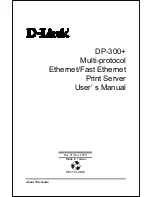
Table 13. NIC indicator codes
Status
Condition
Link and activity indicators are off.
The NIC is not connected to the network.
Link indicator is green, and activity indicator is blinking
green.
The NIC is connected to a valid network at its maximum port speed, and
data is being sent or received.
Link indicator is amber, and activity indicator is blinking
green.
The NIC is connected to a valid network at less than its maximum port
speed, and data is being sent or received.
Link indicator is green, and activity indicator is off.
The NIC is connected to a valid network at its maximum port speed, and
data is not being sent or received.
Link indicator is amber, and activity indicator is off.
The NIC is connected to a valid network at less than its maximum port
speed, and data is not being sent or received.
Link indicator is blinking green, and activity is off.
NIC identify is enabled through the NIC configuration utility.
Power supply unit indicator codes
AC power supply units (PSUs) have an illuminated translucent handle that serves as an indicator. The DC PSUs have an LED that serves
as an indicator. The indicator shows whether power is present or if a power fault has occurred.
Figure 11. AC PSU status indicator
1. AC PSU status indicator/handle
Table 14. AC PSU status indicator codes
Power indicator codes
Condition
Green
A valid power source is connected to the PSU and the PSU is operational.
Blinking amber
Indicates a problem with the PSU.
Not illuminated
Power is not connected to the PSU.
Blinking green
When the firmware of the PSU is being updated, the PSU handle blinks green.
CAUTION:
Do not disconnect the power cord or unplug the PSU when updating firmware. If
firmware update is interrupted, the PSUs do not function.
Blinking green and turns off When hot-plugging a PSU, the PSU handle blinks green five times at a rate of 4 Hz and turns off. This
indicates a PSU mismatch with respect to efficiency, feature set, health status, or supported voltage. If
two PSUs are installed, both the PSUs must have the same type of label; for example, Extended Power
Performance (EPP) label. Mixing PSUs from previous generations of PowerEdge servers is not supported,
even if the PSUs have the same power rating. This results in a PSU mismatch condition or failure to turn
the system on.
CAUTION:
When correcting a PSU mismatch, replace only the PSU with the blinking
indicator. Swapping the PSU to make a matched pair can result in an error condition and
unexpected system shutdown. To change from a high output configuration to a low output
configuration or vice versa, you must turn off the system. AC PSUs support both 240 V and
120 V input voltages with the exception of Titanium PSUs, which support only 240 V. When
two identical PSUs receive different input voltages, they can output different wattages, and
trigger a mismatch.
Dell EMC PowerEdge R640 overview
21
















































